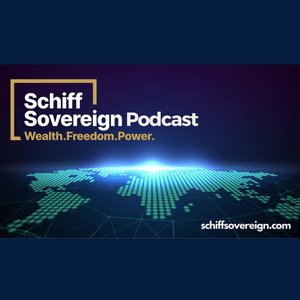Some thoughts on Epstein as an intelligence agent [Podcast]
Many of our readers know that I was an Army intelligence officer, and so I want to start by clearing up some basic terminology.
When people talk about intelligence work, they often confuse terms like asset, agent, and operative.
An asset is someone who provides intelligence—intentionally or not—to an agency. Even a guy who’s bragging in bed to some woman he doesn’t realize is part of a honeypot intelligence operation. He’s spilling secrets and doesn’t even know it. That’s an asset.
An agent, by contrast, knows what they’re doing. They’re actively, willingly working with an intelligence agency. They’re recruited, trained, and they know who they’re talking to.
And an operative is someone actually doing the work—on the ground, collecting the data, running the missions. When people say “CIA agent,” thinking of a James Bond style spy, what they probably mean is an “operative.”
Which brings us to Jeffrey Epstein.
Is it plausible that Epstein was in the intelligence business, either as an agent or even an operative? Of course. It is extremely likely.
This was a guy with deep access to powerful people in politics, finance, science, and media. He was inside every major institution and had personal relationships with celebrities, billionaires, royalty, and heads of state.
Clearly the intelligence community would take an interest in someone like that. Epstein had access, influence, dirt, connections—and he knew how to use them. Combine that with his ability to blackmail people who committed the most vile crimes imaginable and you’ve got leverage more powerful than aircraft carriers and nuclear warheads.
And that may be why no real information has been released.
If Epstein was working with US intelligence, the implications are beyond horrifying.
We're talking about the federal government—funded by your tax dollars—knowingly enabling a long-term blackmail operation built on the exploitation of children.
If they admit Epstein was one of theirs, they'd be admitting that senior officials knew what he was doing, who he was abusing. They let it happen, and they used it as a tool of statecraft.
That kind of admission would light a match to the powder keg that is American distrust in government. And they know it.
There’s also the possibility, that Epstein worked for a foreign intelligence service— and the US intelligence and law enforcement establishment didn’t even realize it.
Which would mean the entire US intelligence community—the CIA, FBI, DOJ, NSA—missed the fact that a foreign service was running a massive blackmail operation on US soil, targeting US officials, abusing children... and they did nothing about it.
That's not just a failure. That’s catastrophic incompetence.
And their motivation to cover that up would be similar to the UK “Grooming Gangs” cover-up that I recently wrote about.
In the UK, grooming gangs operated for years while the government and media looked the other way. Why? Because investigating them might have been politically incorrect. It might’ve been an admission that mass migration and multicultural policies went horribly wrong.
So instead, they gaslit the public, censored speech, and criminalized dissent.
The same pattern is happening here. A massive scandal implicating the highest levels of government, media, academia, celebrity, and global finance is being buried—because admitting the truth would mean admitting failure on a colossal, nation-destroying scale.
I ask a couple other questions in today’s brief podcast, such as:
Where are the investigative journalists? Do you remember the clowns at ProPublica who got their hands on Warren Buffett’s tax returns and paraded them like it was the scoop of the century?
Why haven’t they gone after Epstein’s hedge fund, his financials, his filings? Where’s the Pulitzer Prize-winning exposé?
Same with The New York Times, the Washington Post, and the rest of the self-righteous media establishment.


